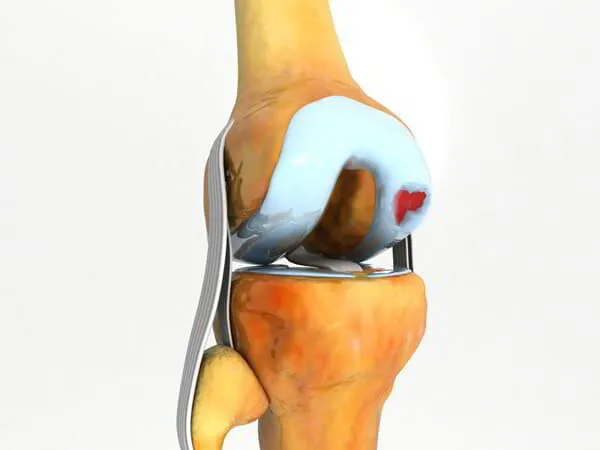Cartilage Transplant
Home / Area of Specialty / Knee / Cartilage Transplant
Dr. Pradyumna R carefully evaluate your conditions and symptoms associated to your knee pain and knee injuries, based on the diagnostic report and scan he would suggest if so, you are a candidate for Cartilage Transplant procedure, he is an highly experienced knee treatment specialist provides diagnosis as well as surgical and nonsurgical treatment options at Bangalore Orthopaedic Clinic, in BTM Layout, Bangalore.
If you have any queries or would like to schedule an appointment for cartilage transplant surgery or cartilage tears or cartilage repair or cartilage tissue (graft) or knee pain treatment consultation please call +919113025188.
What is Cartilage Repair or Cartilage Transplant?
Cartilage is smooth, tough but mostly flexible tissue that covers the ends of bones forming a joint. It protects against friction as it allows movement at our joints. Cartilage can be damaged in a number of ways- by injury, trauma, or just the normal wear and tear that leads to arthritis.
Articular cartilage repair is a type of surgery used to repair damage caused to cartilage by injury or normal degeneration. Typically, articular cartilage is not self-healing, thus surgical procedures have been developed to help stimulate the growth of new cartilage and improve joint function.
Who needs Cartilage Repair?
In the treatment of injuries such as those caused by a torn meniscus or ligament, the cartilage that covers the end of a bone can also be affected. The cartilage does not appear as a white area on an X-ray and hyaline cartilage is difficult to identify. Many patients who have incurred injuries to this cartilage will have other problems during surgery that may need to be addressed before the cartilage damage can be resolved.
Who are the eligible Patients Cartilage Repair?
Most patients who recover from articular cartilage defects are younger adults who have had a single injury, or lesions, of their knee. Patients tend to be older with multiple problems in their ankle or shoulder, and are less likely to benefit from this surgery.
Cartilage problems in the knee are one of the most common causes of joint pain. They may also occur in the ankle and shoulder.
What are possible Cartilage injury Treatments?
Some knee procedures are minimally invasive surgeries performed with an arthroscope (an endoscope for use in joints). Your surgeon will make small incisions around the joint and perform the surgery using slender instruments, including a tiny camera that provides a view inside the area. In general, recovery from an arthroscopic procedure is quicker and less painful compared with recovery from an open (traditional) surgery. So, surgeons have developed several surgical techniques that attempt to Cartilage Repair, Regeneration, and Replacement
Some common procedures are:
Microfracture
Microfracture is a surgical procedure most potent treatment for severely damaged cartilage. The surgery uses a variety of methods to stimulate growth into the knee joint. Microfracture employs punches to create tiny holes in the subchondral bone, which allows new blood vessels and stem cells to permeate the injured area. After surgery, patients must utilize a crutch and participate in physical therapy.
Cell-Based Cartilage Repair
The treatment works by harvesting cartilage cells from the patient 's own knee. The cartilage cells are then grown in a laboratory before being re-implanted into their original position. The implantation is carried out by making two small incisions, one at either end of the defect. A synthetic polymer helps to hold the new cartilage in place once it has integrated with the existing cartilage. The treatment typically takes less than an hour to carry out and usually involves only minor discomfort.
Osteochondral autograft transplantation (mosaicplasty)
Osteochondral autograft transplantation (mosaicplasty) is a procedure where damaged cartilage tissue is removed and replaced with healthy cartilage tissue. This is achieved using an osteochondral autograft, which is either taken from a non-weight bearing area of the knee with the use of a microscope, or from another part of the patient's body.
Osteochondral allograft
In the case of a cartilage defect that is too large for an autograft, an osteochondral allograft may be necessary. Cartilage taken from a selected donor, sterilized and prepped for implantation will be shaped to fit the exact contour of your cartilage defect.
Meniscus transplant
Meniscus transplantation may be performed whether the donor tissue comes from a living or deceased human. The surgical procedure involves an arthroscopic procedure to remove damaged cartilage and suture the cadaver meniscus into the space created in the knee.
Postsurgical Care after Cartilage injury Treatments
If you have a knee cartilage injury, various treatment options are available. You may need to use crutches for six weeks and do exercises with a CPM machine for three months for the best recovery.
For more information on an Cartilage injury or tear, or Cartilage Transplant and the treatment options available, please call +919113025188 Dr. Pradyumna R, Orthopaedic knee specialist serving BTM Layout, Bangalore City.

